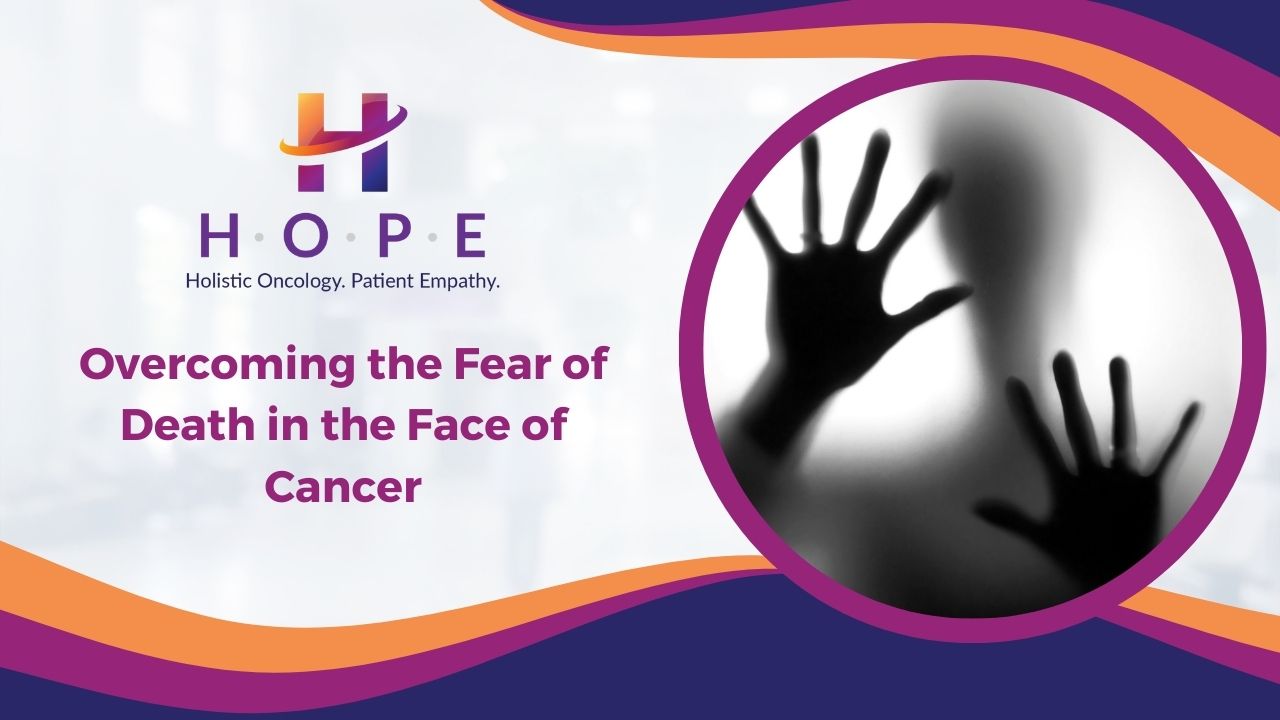Introduction:
A cancer diagnosis often thrusts individuals into a profound confrontation with mortality, leading to an understandable fear of death. However, it is crucial to recognize that this fear is a natural response to a life-altering situation. In this article, we will explore the complexities of the fear of death associated with cancer and discuss strategies for coping, finding meaning, and ultimately embracing life in the midst of uncertainty.
I. Acknowledging and Understanding Fear:
The Natural Response:
Fear of death is a universal human experience, and a cancer diagnosis intensifies this fear. Acknowledging the fear and understanding its roots is the first step towards addressing it.
Cultural and Personal Perspectives:
Cultural and personal beliefs significantly influence how individuals perceive and approach death. Exploring one’s beliefs and seeking support from spiritual or religious sources, if desired, can provide comfort and guidance.
II. Coping Strategies:
Mindfulness and Meditation:
Practices such as mindfulness and meditation can help individuals stay present and manage anxiety about the future. These techniques promote a sense of calm and provide tools for coping with overwhelming emotions.
Expressive Arts and Writing:
Engaging in expressive arts, such as painting, writing, or music, provides a creative outlet for processing emotions. Journaling, in particular, can be a therapeutic way to express fears and hopes, facilitating a deeper understanding of one’s feelings.
Connecting with Others:
Sharing fears and emotions with trusted friends, family, or support groups can alleviate the sense of isolation. Knowing that others have faced similar fears and found ways to cope can be reassuring.
Professional Counseling:
Seeking the guidance of a mental health professional or counselor can offer tailored strategies for coping with the fear of death. Therapy provides a safe space to explore emotions, develop coping mechanisms, and gain perspective.
III. Finding Meaning and Purpose:
Life Review and Reflection:
Taking time to reflect on one’s life, accomplishments, and relationships can bring a sense of purpose and meaning. Recognizing the impact one has had on others and the world can contribute to a more fulfilled perspective.
Setting Meaningful Goals:
Establishing achievable and personally meaningful goals can provide a sense of purpose. These goals can be small, daily accomplishments or larger, long-term aspirations that contribute to a sense of fulfillment.
Spirituality and Existential Exploration:
For many, spirituality offers a framework for understanding and finding meaning in the face of death. Engaging in conversations about the meaning of life, death, and existence with spiritual leaders or fellow seekers can be enlightening.
IV. Facing Uncertainty:
Embracing the Present:
While the future may be uncertain, focusing on the present moment can be a source of comfort. Appreciating the small joys and experiences each day brings contributes to a more fulfilling life.
Advanced Care Planning:
Engaging in advanced care planning discussions with healthcare professionals and loved ones can provide a sense of control. Clearly defining preferences for medical care and end-of-life decisions can alleviate anxiety about the unknown.
Educating Yourself:
Understanding the disease, treatment options, and potential outcomes can empower individuals to make informed decisions. Knowledge can demystify the fear of the unknown and help individuals navigate their journey more confidently.
V. Seeking Support:
Medical and Palliative Care Teams:
Building a strong support network, including medical professionals and palliative care teams, is essential. These professionals can offer medical expertise, emotional support, and guidance on managing symptoms and improving the quality of life.
Support Groups:
Connecting with others who are facing or have faced similar fears can be incredibly comforting. Support groups provide a platform for sharing experiences, insights, and coping strategies in a compassionate and understanding environment.
Conclusion:
The fear of death in the face of cancer is a formidable challenge, but it is not insurmountable. By acknowledging, understanding, and actively addressing these fears, individuals can embark on a journey of self-discovery and find ways to embrace life with a renewed sense of purpose and meaning. Through the support of loved ones, professionals, and personal coping strategies, individuals can navigate the complexities of their emotions and fears, ultimately finding solace and a profound appreciation for the richness of life, regardless of its duration.








